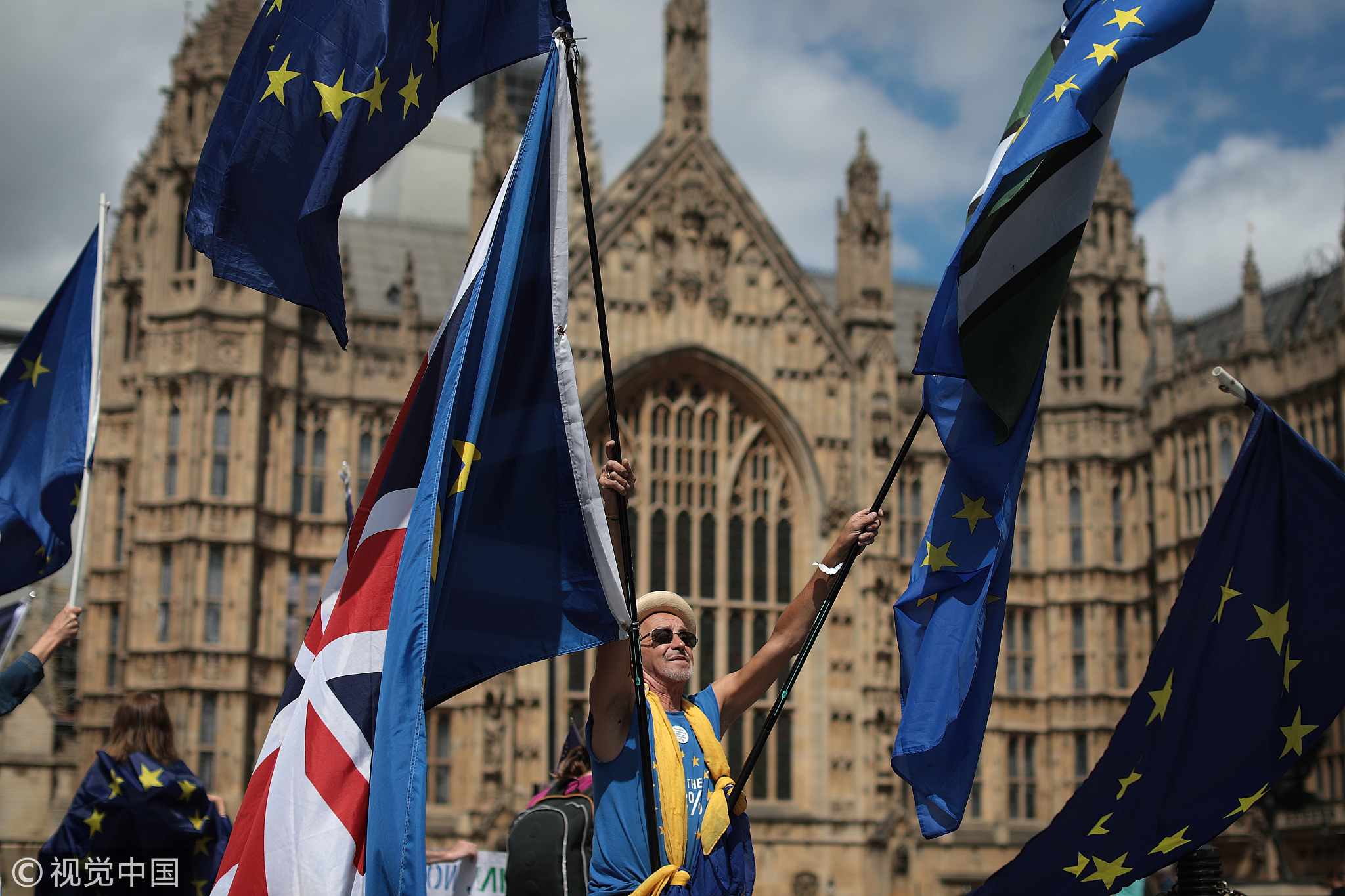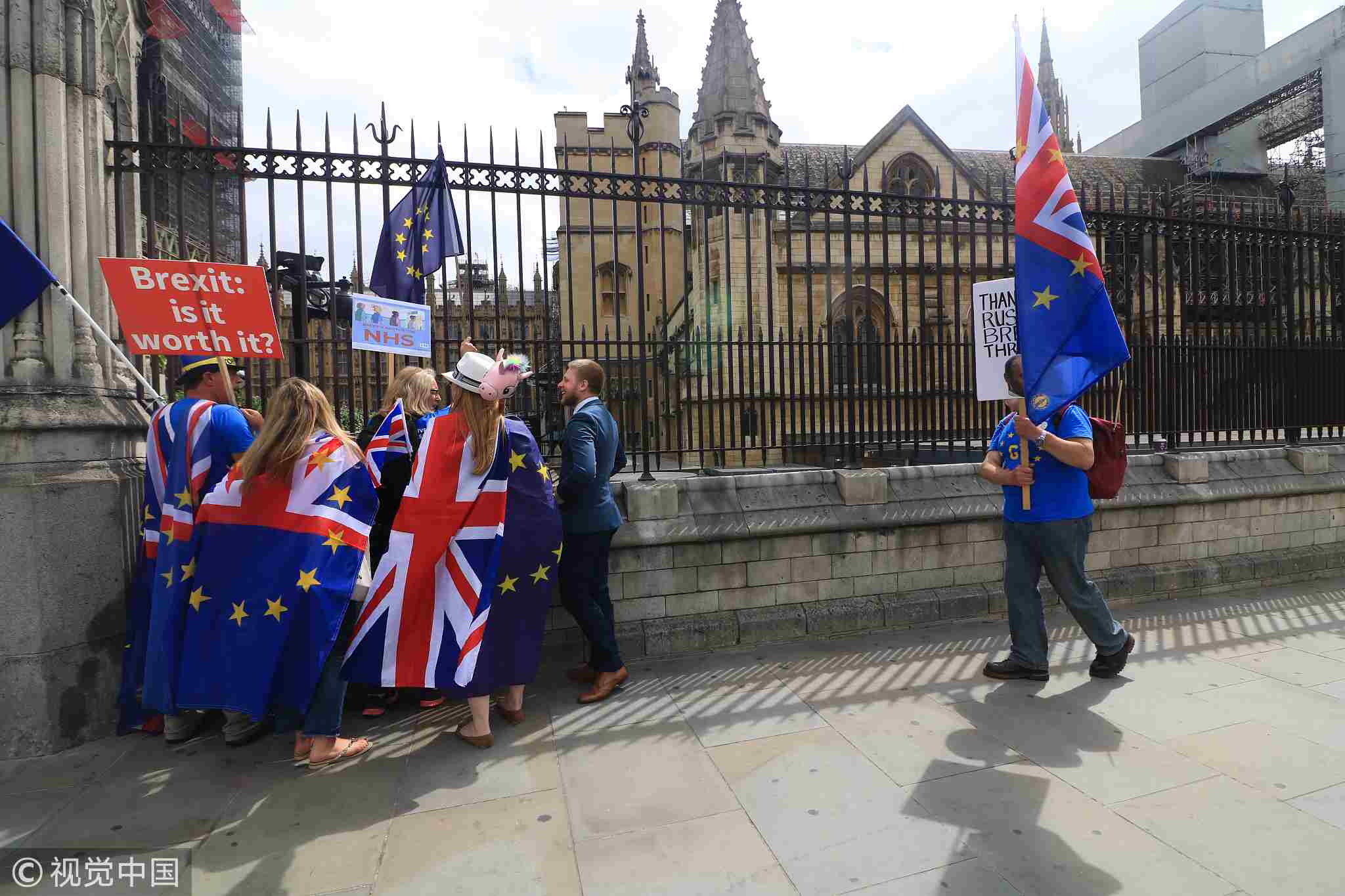
Opinions
15:42, 22-Jun-2018
Opinion: Brexit: a Pandora’s box of Western Populism
Cui Hongjian

Editor's note: Cui Hongjian is a director of the Department of European Studies at the China Institute of International Studies, China. The article reflects the author's opinion, and not necessarily the views of CGTN.
Two years after the Brexit referendum and one year after the official start of the Brexit negotiations process, it is the right time to sum up this short history with the famous words of Mr. Franz Kafka: “History is made by every unworthy of instantaneous errors and heroism.”
Britain was dragged into the Brexit process by surprise because of the referendum, which made it difficult for the United Kingdom to achieve what it had hoped for in terms of a "stable and steady" Brexit result.
The Brexit referendum has now become a major event that has shaken Europe and the West and will continue to affect the world, but before anyone, mainstream politicians in the UK. Referendums fail to serve as an assistance to democratic politics. Instead they are manipulated by a small ruling elite to maintain their interests by using the public to endorse them.
The referendum was used in public rhetoric by then Prime Minister David Cameron to reach his personal and party’s purposes: keeping his dominating position in a divided Conservative Party, and meeting the interests of the party to keep its ruling position in the UK.
So Mr. Cameron tied the Brexit referendum with the Conservative Party’s victory in the election. He also was driven by an impulse to be a “hero”: to resolve the domestic dissatisfaction with the EU once and for all during his term of office.
But unfortunately, as we found out later on, this complex operation of democracy and public opinion by British politicians is based on the wrong judgment of public opinion. The UK was not well-prepared for leaving EU, because the decision came from the divided public.

Anti-Brexit demonstrators gather outside the Houses of Parliament in London on Jun 20, 2018./VCG Photo
Anti-Brexit demonstrators gather outside the Houses of Parliament in London on Jun 20, 2018./VCG Photo
This directly led to subsequent British politics falling into a modest chaos: the Cameron government resigned, the petition of “second referendum” was signed, the Supreme Court intervened, and the internal divisions among Conservatives continued.
Facing the mess, Prime Minister Theresa May took over and tried to play the "heroic" role again: to rescue Britain from Brexit through a strong leadership and ensure a smooth and rapid Brexit because only a rapid process can avoid the fissures in public opinion and consolidate the Conservative’s governing status.
However, she committed the mistake of “heroes” who often arrogantly take risks: the snap election did not help her win a greater advantage in the parliament. Instead, she weakened the government’s leading ability in the Brexit process and helped the opposition Labour Party make a comeback.
It is predictable that the struggle between the government and the parliament to dominate the Brexit process and the conflicts between the Brexiteers and the remaining members among the Conservatives will continue throughout the whole Brexit process.
All of the domestic turmoil will certainly cause huge frictions in May’s government, which will lead to insurmountable obstacles for a timely Brexit.

Anti-Brexit protesters outside the Houses of Parliament in London on Jun 20,2018./VCG Photo
Anti-Brexit protesters outside the Houses of Parliament in London on Jun 20,2018./VCG Photo
Another factor that made it difficult for the Brexit process to unfold smoothly according to schedule is the position of the EU.
The Brexit is a big blow to the EU. In addition to dealing with the direct impact of Brexit, the EU is more concerned with the negative effects it may have on other member states: the process will obviously play a negative role on other member states that have already been dissatisfied with the EU and whose vision for integration has been shaken.
Therefore, maintaining the strong position in the negotiations and issuing punitive conditions to the UK have become the EU’s basic goal in the process. Whether it is the so-called "break-up fee" issue or the Northern Ireland border issue, these are the embarrassing situations that Britain has to cope with.
However, the EU’s strong position in the Brexit negotiations does not ensure that other member states are sufficiently immune to Brexit once it lacks the capacity to resolve the difficult issues of refugees, debts and economy in some member states.
Despite such difficulties, Britain seems to continue moving on the road to exit. What are the forces and trends driving it?
If the answer is populism, some British elites who support Brexit will strongly oppose, because, in their view, an EU that only "expropriates" British finances and restricts its independent development is not worthwhile but should be abandoned immediately.
In their vision, after Brexit, Britain will “win all sovereignty from Brussels” and more opportunities on a bigger stage.
However, obviously, the confusion and pessimistic scenario that Brexit showed from the referendum to the negotiation process are not the result of a rational decision.
It does involve a large number of populist demands that require Britain to return to a relatively closed state and uphold a slogan of “Britain First.”.
It may be wrong to conclude that Brexit is the origin of the story that is taking place across the Atlantic because there are differences between the national conditions of the United Kingdom and other Western countries.
But indeed, in the form of abusing the referendum and in the essence of politicians’ shirking of responsibility, Brexit opened a Pandora's box of rising Western populism.

SITEMAP
Copyright © 2018 CGTN. Beijing ICP prepared NO.16065310-3
Copyright © 2018 CGTN. Beijing ICP prepared NO.16065310-3